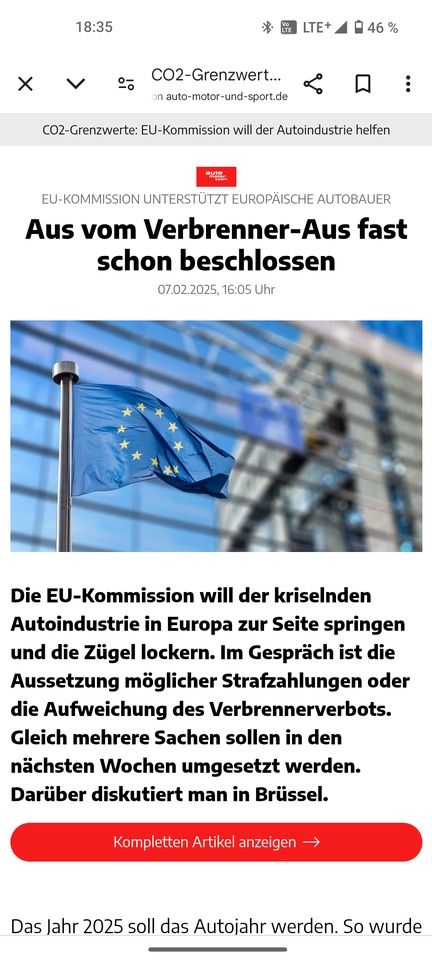Far from "I LOVE VEHICLES": it probably makes sense to waive the fines now but maintain the targets. The largest manufacturers are so far along in the electrification process that they are at most moving a little more slowly towards electric cars, which in my view only makes sense for the extremely slow DE market.
However, if they take the pressure off again in terms of further development and stand still again technologically, I don't see any future for $VOW (+0,93 %) really have no future. The only thing that will save them until the release of the ID2 is the skepticism of Germans towards Chinese products.
I think 2027-2028 will be exciting. Would you have found the payments sensible?











